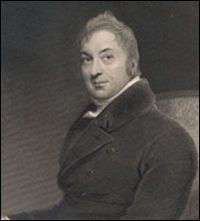In a vote this afternoon the Federal Communications Commission voted open debate on a proposal that would essentially end net neutrality. In a 3 – 2 vote, Chairman Thomas Wheeler and the two other Democratic members voted to allow Internet service providers charge content companies for faster and more reliable delivery of their traffic to users.
Critics worry the rules would create “fast lanes” for companies that pay up and slower traffic for others, although Wheeler has pledged to prevent “acts to divide the Internet between ‘haves’ and ‘have nots.'”
The FCC’s proposal tentatively concludes that some pay-for-priority deals may be allowed, but asks whether “some or all” such deals should be banned and how to ensure paid prioritization does not relegate any traffic to “slow lanes.” [..]
Consumer advocates want the FCC to reclassify Internet providers as utilities, like telephone companies, rather than as the less-regulated information services they are now.
Opponents have told Wheeler that stricter regulations would throw the industry into legal limbo, discourage investment in network infrastructure and still not prevent pay-for-priority deals.
Numerous technology companies, including Google Inc and Facebook Inc, have spoken out against allowing pay-for-priority, although they have not called for reclassification.
At the moment, nothing has change but as Mike Masnick at Techdirt put it, the door is now open to a very messy process that didn’t need to happen because the FCC has the power to declare the Internet a public utility:
At this point, what we basically have is open season on lobbyists trying to influence the FCC one way or another, eventually leading to some sort of rulemaking, followed (inevitably) by a bunch of lawsuits from broadband providers who aren’t going to be happy with any solution. And, of course, the potential (unlikely as it may be) for Congress to get involved. [..]
And while Wheeler has suggested that the FCC is willing to knock down laws that block competition, we’ll believe it when we see it in action. On top of that, Wheeler made it clear today that he still sees the interconnection issue as a separate issue, even thought it’s becoming clear that that’s where the real problem is. Oh, and while lots of people are calling for Title II reclassification, and there are many reasons to believe that may be the best solution, it’s also exceptionally messy as well, because Title II has lots of problems as well. The FCC would need to deal with those problems, via forbearance, which creates a whole different set of headaches. [..]
But, that doesn’t mean that everyone should just throw up their hands and go home to their (increasingly slow) internet. The broadband lobbyists will not be doing that. And, of course, they know quite well how to play the lobbying game and how to work the ins-and-outs of everything above. It is why it’s going to become increasingly important to become much more informed on a variety of these issues and the true implications of the choices the FCC makes in the coming months. If you would like to weigh in, and I do suggest everyone seek to share their comments with the FCC, I would suggest first spending a little time more deeply reading through the full set of issues and what the pros and cons of different options may be. You can file comments directly with the FCC or via a very, very handy Dear FCC tool that the EFF put together.
Time to take action by sending this easy letter to the FCC that the Electronic Freedom Foundation has put together:

It’s our Internet. We made it, and it has re-made us, changing the way we communicate, learn, share and create.
We want the Internet to continue to live up to its promise, fostering innovation, creativity and freedom. We don’t want regulations that will turn our ISPs into gatekeepers, making special deals with the few companies that can “pay to play” and inhibiting new competition, innovation and expression.
Start your letter to the FCC by clicking here
Keep the Internet Neutral





Recent Comments